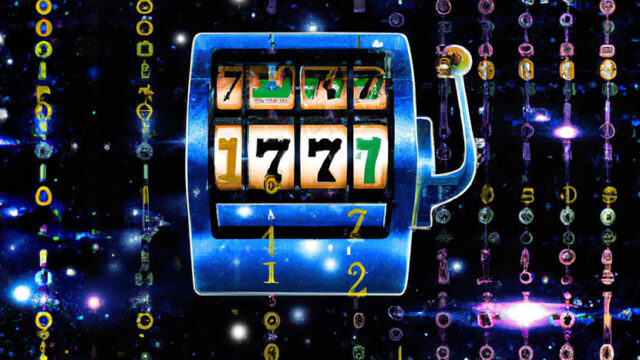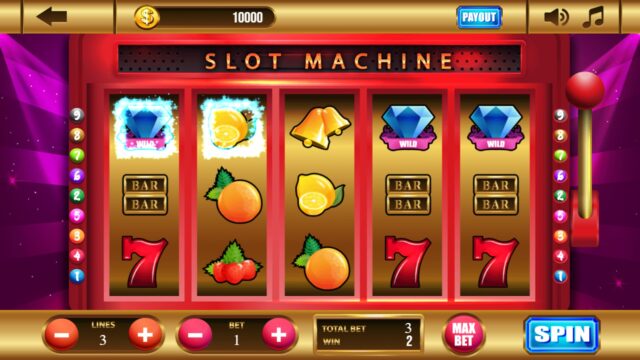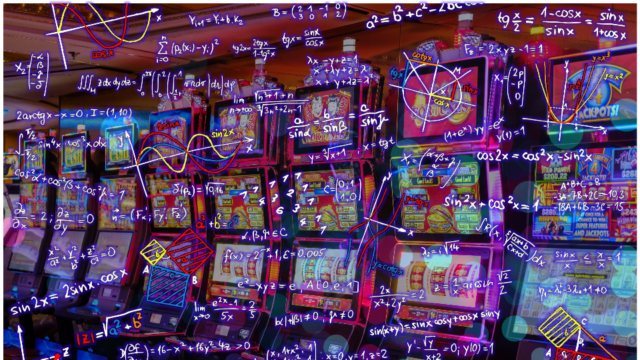
From humble mechanical beginnings to high-tech digital iterations, slot machines have long held a unique allure in the gambling world. Their easy-to-understand gameplay, attractive designs, and captivating lights and sounds have kept players engrossed for decades. In this section, we will take a brief trip back in time to understand the history of slot machines, the role of science and technology in their development, and set the stage for the main focus of this article: the science behind slot machines, especially in the digital realm of online casinos.
The liberty bell, the world’s first slot machine, was developed by Charles Fey in San Francisco around the end of the 19th century. This mechanical gambling device had three spinning reels, each adorned with symbols of diamonds, hearts, spades, and a cracked liberty bell. As technology evolved, so did these gaming machines.
In the mid-20th century, the electro-mechanical slot era commenced, offering enhanced gameplay, bigger jackpots, and flashy lights and sounds. A notable milestone in this era was the Money Honey slot machine by Bally Technologies, known for its automatic payouts of up to 500 coins.
The digital revolution of the 1980s brought about computerized slots, marking the dawn of Random Number Generators (RNGs). These machines provided enhanced security, game diversity, and the possibility of life-changing jackpots. The introduction of online casinos in the late 1990s gave birth to the era of online slots, which have since undergone continuous improvement to deliver an exciting, convenient, and fair gaming experience.
Understanding Slot Machines

To fully grasp the impact of RNGs in the digital gambling world, one must first understand the basic principles of traditional slot machines, their evolution to digital platforms, and the key differences between these two formats.
Explanation of How Traditional Slot Machines Work
Traditional slot machines, often referred to as one-armed bandits operated on a mechanical principle. A player would insert a coin and pull a lever, which would set several reels into motion. Each reel had a series of symbols, and the aim was to line up matching symbols on the pay line when the reels stopped spinning.
The mechanical slots were ingenious devices using an intricate system of gears and levers. Each reel was attached to a geared wheel, and a specific combination of the wheels’ rotation determined the stop positions of the reels, and thus the symbols displayed. These machines utilized a payout mechanism that would automatically dispense coins based on predefined symbol combinations.
The Transition from Mechanical to Digital Slot Machines: The Role of RNGs
With the advent of microprocessors in the 1980s, slot machines underwent a revolutionary transition from mechanical to digital. This ushered in the era of the RNG, a computerized system that generated thousands of random numbers per second.
In digital slot machines, each number generated by the RNG corresponds to a particular combination of symbols on the reels. When a player initiates a spin, the RNG selects a random number at that precise moment, and this number determines the outcome of the game. This process ensures that each spin is independent and unrelated to previous or subsequent spins, making each game a separate event.
Key Differences Between Traditional and Online Slot Machines

While traditional and online slot machines share the basic goal of achieving a specific combination of symbols, there are key differences between the two.
- Technology and Gameplay: Traditional machines are mechanical or electro-mechanical, while online slots are entirely software-based. This shift to digital allows for enhanced graphics, sound, and animation, providing a more immersive experience.
- Accessibility and Convenience: Online slots are accessible round the clock on mobile devices from any location with internet access, offering unparalleled convenience. Traditional slot machines require a physical presence in a casino.
- Game Variety: Online casinos offer a vast selection of slot games with different themes, bonuses, and features, far surpassing the variety found in land-based casinos.
- RNG and Fairness: Both types of slot machines use RNGs to determine game outcomes. However, online slots are subject to stringent regulations and independent auditing to ensure the integrity and fairness of their RNGs.
Understanding these differences is crucial when transitioning from traditional to online slots. It allows players to fully appreciate the advantages of online casinos and the incredible technology that powers them.
Random Number Generators (RNGs): The Heart of Online Slot Machines

Random Number Generators are the pulsing core of how online slots work. They are the force that brings digital games to life, imbuing them with unpredictability, fairness, and thrill. To understand the true importance of RNGs, we need to dissect their definition, role, and impact on online slot machines.
Definition and Explanation of RNGs
A Random Number Generator (RNG) is a computer algorithm that produces a sequence of numbers or symbols that lack any pattern, i.e., the numbers are random. In the context of online casinos, RNGs are sophisticated software algorithms that ensure each game result is entirely independent and free from interference or predictability.
RNGs in online casinos operate on a principle known as pseudorandomness. They use an initial value, called a seed number, combined with complex mathematical formulas to generate a sequence of numbers that appear random. It’s important to note that while the sequences seem random, they are, in fact, deterministic and will repeat over very long periods – a trait that doesn’t affect the fairness of casino games due to the astronomical number of possible sequences.
The Role of RNGs in Online Slot Machines

RNGs serve a crucial role in determining the outcome of every single spin in an online slot machine. The moment a player clicks the ‘spin’ button, the RNG generates a random number. This number is then translated into a specific position of the reels, deciding where they stop and which symbols are displayed.
The continuous, incessant number generation of RNGs – even when the game isn’t being played – ensures that the outcome of each spin is completely independent of the previous or the next one. In other words, each spin is an isolated event, just like flipping a coin or rolling a die.
How RNGs Contribute to the Fairness and Unpredictability of Online Slot Games
The principal attributes of RNGs – unpredictability and independence – are what make online slot games both fair and exciting.
The unpredictability provided by RNGs ensures that game outcomes can’t be anticipated, which is essential in gambling. Each spin has an equal chance of being a winning or losing one, regardless of the game’s history. This unpredictability lends the thrill of surprise to every game, enhancing the player’s gaming experience.
The independence of each spin guarantees fairness in online slot games. Since each game result is determined independently, past losses or wins have no impact on subsequent outcomes. This characteristic upholds the principle of fair play, assuring players that each spin is a fair shot at winning.









